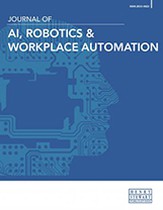Legal issues arising from the use of artificial intelligence in government tax administration and decision making
Abstract
This paper examines the issues that arise when government administrative decisions, such as those relating to taxation and social security, are aided wholly or partially by artificial intelligence (AI). As we move further into the digital age, AI is increasingly adopted by the public sector to achieve greater accuracy of analysis and resource efficiency, but it is evident through instances such as the ‘Robodebt’ debacle that there is room for (non-human) error. In administrative law, such decisions can be reviewed judicially or on the merits of the case; however, the difference between error caused by a human delegate and an automated delegate is that we are not yet able to comprehend the reasoning steps undertaken by automated decision makers. This paper highlights the arising need to define what constitutes a decision (and a decision maker) for administrative law purposes, and addresses the implications of when decisions made predominantly by AI are erroneous or cause harm to taxpayers.
The full article is available to subscribers to the journal.
Author's Biography
Elizabeth Bishop (LLB Southern Cross University; MTax University of Sydney) is a barrister at the New South Wales bar, practising at Ground Floor Wentworth Chambers in Sydney, Australia. Elizabeth practises in federal and state taxation law, administrative law, equity and trust law, property and general commercial disputes. She represents resident and non-resident clients, revenue authorities and federal and state government bodies in the Administrative Appeals Tribunal, NSW Civil and Administrative Tribunal, the Supreme Court of NSW, the Federal Court and the High Court of Australia. Elizabeth has been recognised in the Doyle’s Guide of leading tax barristers in 2018–20, and the International Tax Review on the Women in Tax Leaders List for Australia in 2017–21.
